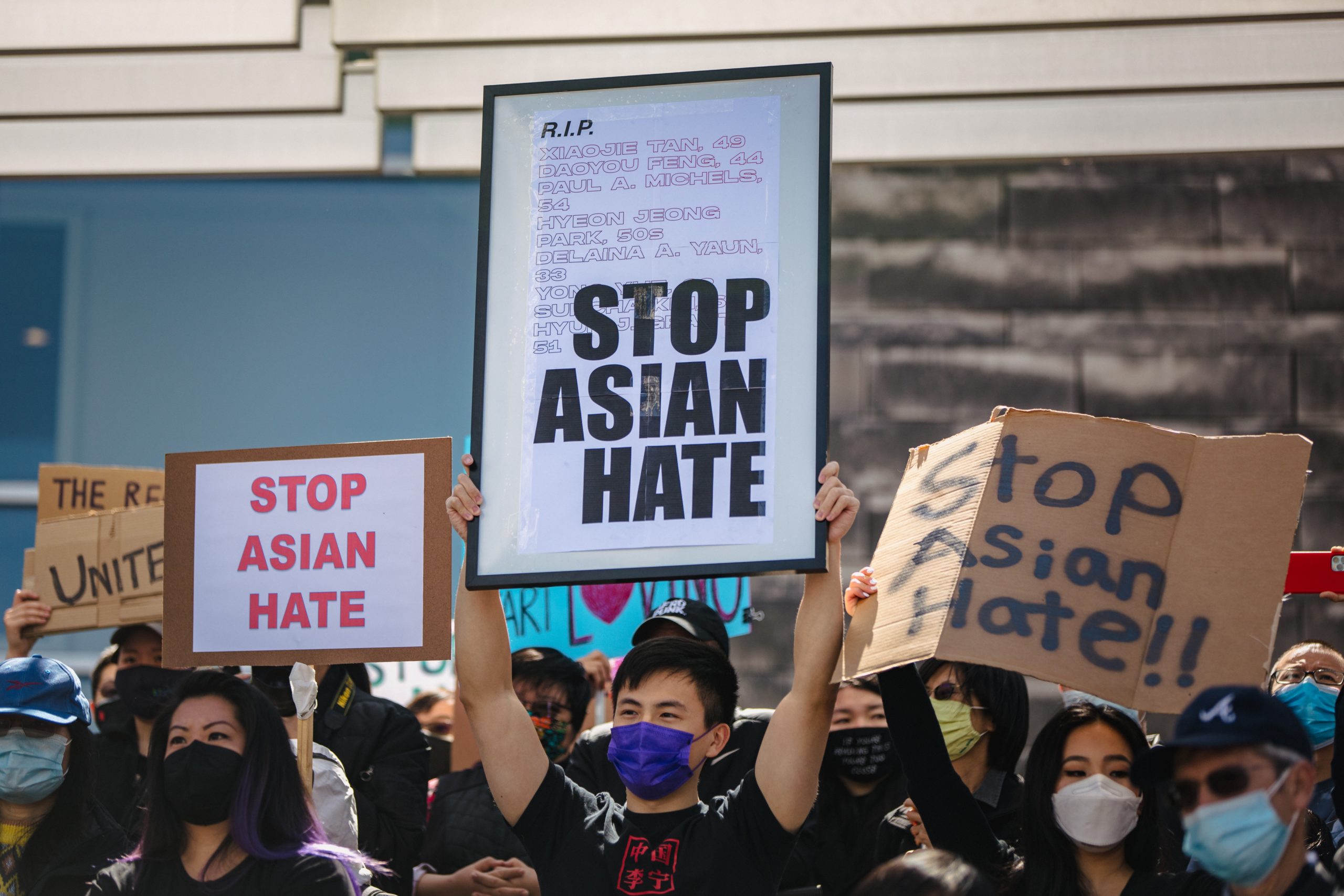|
|
|
|
 Photo by Jason Leung/Unsplash
What Twitter tells us about anti-Asian hateUniversity researchers gleaned information from Twitter users to examine public opinion toward #StopAsianHate and #StopAAPIHate, the hashtags and websites that provide information, resources, places to donate, and places to report hate crimes.
In a paper posted at arXiv, an open-access, non-peer-reviewed repository of scientific papers, the researchers, including Jiebo Luo, professor of computer science; lead author Bruce Lyu, and Mayya Komisarchik, assistant professor of political science, find that:
- The growing political divide in the US extends to this issue, with Biden supporters more likely to support the hashtags, and Trump supporters more likely to be negative.
- Black and white communities tend to divide over this issue as well, pointing to each other as the ones to be blamed for anti-Asian hate crimes. Black Twitter users, for example, are more likely to discuss their solidarity with the Asian community and tend to retweet messages that criticize white supremacy.
- The hashtags attract more participation from women and younger adults, and from Asian and Black communities.
- Women are more likely to state direct support and demand policy changes than men, who tend to discuss the issue in more general ways.
- The hashtags receive more support in states with higher percentages of Asian populations and a higher incidence of racially motivated hate crimes.
Read more here.
Wastewater surveillance detects COVID on college campusesWastewater monitoring is a promising tool for COVID-19 surveillance, according to a new paper in the International Journal of Environmental Public Health. Katrina Smith Korfmacher, professor and director of the Community Engagement Core of the Department of Environmental Medicine, co-led this study, which synthesizes initial wastewater surveillance efforts at 25 colleges and universities from across the country, including St. John Fisher College.
People infected with COVID may shed the virus in their feces even if they have no symptoms. Although the SARS-CoV-2 virus is not known to survive long in wastewater, genetic material from the virus can be detected in sewage for many days. Therefore, measuring the amount of this material in sewage can provide an early indicator of infection trends in the population.
Wastewater monitoring helped these colleges detect, contain, and prevent wider spread of COVID infection. For example, in August 2020, the University of Arizona detected SARS-CoV-2 in the wastewater from a student dormitory. Follow up testing identified two asymptomatic infected students, who were transferred to an isolation facility, potentially preventing an outbreak of COVID-19 on campus.
The findings could provide a blueprint for other institutions – like nursing homes, workplaces, and jails – and inform community efforts to monitor for COVID and other infectious diseases. Read more here.
PhD students can apply for AR/VR trainingThe University’s PhD Training Program on Virtual and Augmented Reality is looking for doctoral students who desire AR/VR cross-training experiences to pair with their existing studies.
This NSF Research Traineeship (NRT) program admits PhD students from multiple University of Rochester departments including biomedical engineering, brain and cognitive sciences, computer science, electrical and computer engineering, neuroscience, and optics.
The deadline to apply for funded fellowships–available to US citizens and permanent residents only–is July 1. The deadline to apply for the general trainee program is August 15. Information about applying can be found here.
Full information on the program is available here. Questions? Contact Kathleen DeFazio, program coordinator.
Diversity and re-entry grants offered by NIHThe NIH offers diversity and re-entry supplements to current NIH-funded grants to promote diversity among the health research workforce.
Trainees, postdoctoral scholars, and early-stage faculty from groups that are underrepresented in health research, and individuals whose careers have been interrupted by qualifying life events, can apply for supplemental funding through the UR CTSI’s UL1 grant. Complete the online submission form by Thursday, July 1.
Keeping abreast of the University's response to COVID-19
Here are important links for researchers:
PLEASE NOTE that the University’s COVID-19 Dashboard is updated daily and dashboard numbers may reflect additional cases confirmed later in the day. When a new case is known, the contact-tracing process begins immediately with the Monroe County Health Department, with confirmed exposures being contacted and required to quarantine. Remember:
If you feel like you’re experiencing any COVID-19 symptoms, it’s best to report them through Dr. Chat Bot immediately. Even if you think your symptoms might be something else, like a cold, seasonal congestion, or allergies, it’s still important to tell University health professionals and contact tracers what you are experiencing—they always want to receive more, not less, information.
Common COVID-19 symptoms include:
- A temperature of 100 °F (37.8 °C) or higher
- Chills
- Muscle or body aches
- Severe fatigue
- Headache
- Congestion or runny nose
- Sore throat
- Loss of taste, smell, or appetite
- Cough, shortness of breath, or difficulty breathing
- Nausea, vomiting, or diarrhea
|
|
|
|
|